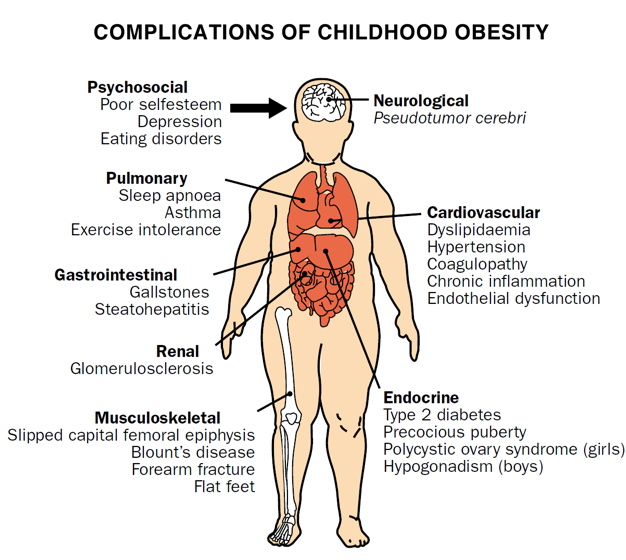Comorbid Effects of Obesity in Children – Sleep Apnea
Childhood obesity is believed to affect approximately thirteen percent of children from six to eleven years of age and fourteen percent of adolescent children age twelve to nineteen years of age. These numbers continue to climb annually, putting these groups of children at risk for type 2 Diabetes, heart disease and even hypertension. Another risk that we fail to remember when considering the comorbid effects of childhood obesity is Sleep Apnea. According to statistics collected by the Surgeon General, Sleep Apnea is another risk of childhood obesity. Sleep Apnea can be serious and even life-threatening if not managed properly.
What is Sleep Apnea?
Characterized by short, involuntary pauses during sleep, Sleep Apnea can happen several times per night. Children who suffer from Sleep Apnea find it hard to get a good night’s rest as with each pause in breathing, the average sufferer will abruptly awake, often gasping for breath.
Without restorative sleep, children with Sleep Apnea are tired and often feel the need to sleep all through the following day. Attention spans shorten and children become more sedimentary. This often leads to a decrease in grades, sports and other activities. While overweight children are at high risk for Sleep Apnea, thin children are not completely safe from this condition.
Symptoms of Sleep Apnea in Obese Children
Often times, the symptoms of Sleep Apnea are overlooked or explained away as children are labeled as attention deficit or hyperactive. Some common daytime symptoms to watch for in children include: hyperactivity, inattention, behavior problems and sleepiness.
Children with night time symptoms of can exhibit the following Sleep Apnea issues: snoring, restless sleep, breathing with only the mouth, pauses in breathing during sleep, and difficulty waking up in the mornings, even after a full night’s rest.
Treating Sleep Apnea
Childhood obesity is not the only cause of Sleep Apnea in children. Common causes can include enlarged tonsils or adenoids and some dental conditions such as a serious overbite while less common causes include tumors or growths obstructions in the airway. Down and Pierre-Robin Syndromes may also cause Sleep Apnea symptoms because of enlargements affecting the jaw and tongue.
Whether child or adult, obstructive Sleep Apnea may cause a bevy of serious and even life threatening complications. Some of these complications include cardiovascular disease and accidents as well as premature death.
It is vitally important for parents of obese children to watch for signs and symptoms of Sleep Apnea – especially labored snoring or pauses in breathing. If any of these warning signs are present, make an appointment with your child’s pediatrician to discuss the possible causes and ask for the appropriate medical examinations.
While it is doubtful that your child will need to undergo weight reduction surgery, this is a growing possibility that may be considered. Your pediatrician will help with weighing the options and making an educated decision that is best for the health of your child. One great benefit is that in many cases after weight reduction surgery in children, doctors have found that the body is able to slowly heal itself from several results of obesity.
Lastly, when dealing with obese children, it is important to be attentive to the possible onset of health issues such as Sleep Apnea without singling children out. Always be supportive and use tact as children know when they are obese and need both love and support.


